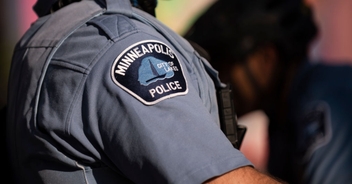Juggalos are perhaps the only appropriate bogeymen for the Trumpian era. In an age when life in the western world has never before seemed so strange, fragmented or unstable, it takes a villain of disastrous proportions to cut through the noise. With international tensions rising to unbearable levels one minute then smiles and handshakes the next, we’ve become so numb to bad news - so sceptical of what we’re told - that only a real-life cartoon bad guy could create good old-fashioned public outrage.
But, in effect, that’s just what Juggalos are. With their evil clown make-up and their cult-like love of hip hop duo Insane Clown Posse, they are as ripe for moral panic as they are for parody. Furthermore, when the FBI classed them as a criminal gang, it was official. They were the bad guys we needed in order to unite together and defeat this evil scapegoat.
Needless to say, this never actually happened. However, to add a few octaves to the shrill scream of public outrage, it turns out that Juggalos can outsmart the authorities’ newest weapon against criminals - facial recognition software.
Earlier in the year, this technology was deployed at BBC Radio 1's festival Biggest Weekend in Swansea, UK. South Wales Police used its Automated Facial Recognition (AFR) system which uses CCTV-style cameras in conjunction with a piece of software by tech firm NEC. A man with an outstanding warrant had been arrested “within 10 minutes” of the system being deployed.
Criticised for being somewhat Orwellian in its approach, facial recognition technology is nonetheless praised for its level of accuracy. Newest developments include the technology’s ability to assess emotions - to work out, for instance, whether you are relaxed, happy or a “threat”.
However, had this technology been used at a Juggalo get-together, such as Gathering of the Juggalos last month, the outcomes might have been very different. Twitter user @tahkion, who blogs about computer science at WonderHowTo, made the discovery.
Juggalos’ clown make-up, with its contrasting white base and black accents, effectively redefines the jawline. The position and shape of the jawline, in relation to the face’s other features, is a key component of a face’s unique signature.
Elsewhere, facial recognition is being used for market research, to identify people’s emotions in interviews and it is regularly used in supermarkets to help categorise shoppers and analyse their thoughts and behaviour. However, its purest purpose is to realise it is looking at a “person of interest” and Juggalo make-up makes this a near-impossible task.
However, many people would see this as a win for the civil liberties of a group which is often misunderstood. With more than a million Juggalos and Juggalettes in the US alone, the National Gang Intelligence Center acknowledge that up to 90 per cent aren’t criminals. Yet, in 2011, the FBI released a report which classified Juggalos as a gang.
Insane Clown Posse initially seemed complicit with the classification as it afforded them more notoriety. However, it became clear that this would be a real problem for their fans due to gang enhancements for Juggalos caught committing crime. In January 2014, aided by the American Civil Liberties Union of Michigan, the group filed a lawsuit against the FBI. This was dismissed but the decision was appealed.
In September last year, Juggalos marched on Washington for the declassification of Juggalos as gang members. In December, the Sixth Circuit ruled that Insane Clown Posse had failed to demonstrate harm caused by the FBI's 2011 report.
In the same time period, facial recognition technology has developed into a viable tool for a wide range of purposes - everything from unlocking your phone to catching known criminals.
"Using only low-quality video footage, our technology has the ability to determine an individual's state of mind or intent through their facial expressions, posture, gestures and movement," stated chief executive of WeSee David Fulton.
The firm's big claim is that its AI tech can detect suspicious behaviour by reading facial cues imperceptible to the untrained eye. This is being deployed in interviews in order to access the candidate's emotional state. WeSee says it has been working with a "high profile" organisation in law enforcement.
Meanwhile, Amazon has come under fire for selling its Rekognition software to US police forces. An American Civil Liberties Union study revealed that the software had linked 28 photos of members of Congress to publically-available mugshots. "Nearly 40 per cent of Rekognition’s false matches in our test were of people of color, even though they make up only 20 per cent of Congress," wrote ACLU attorney Jacob Snow.
Facial recognition software is known for disproportionately targetting black people and it often can't tell the gender in people of colour. “People of color are already disproportionately harmed by police practices," Snow continues, "and it’s easy to see how Rekognition could exacerbate that."
Clearly, these two seemingly separately issues - of Juggalos' place in society and of facial recognition software's technical and moral viability - are perhaps more closely linked than one might think. Neither of the two is inherently evil and yet there is a certain fear which they each produce.
If criminal Juggalo gang members are known to police, they might just be better off with their make-up than without. However, it's unfair to discriminate against someone based on their social background and, more importantly, the vast majority of Juggalos have nothing to hide.
Featured illustration by Egarcigu


